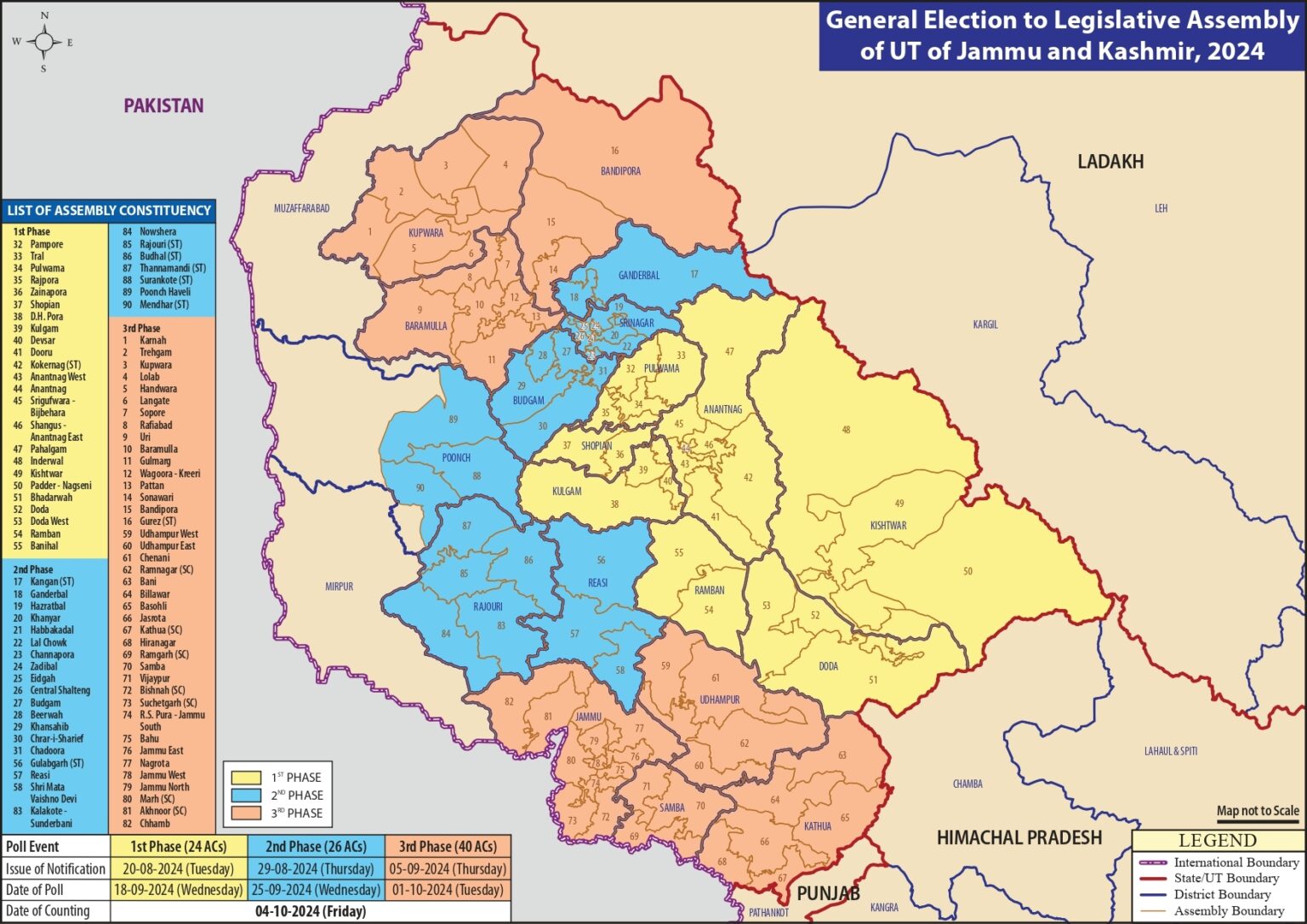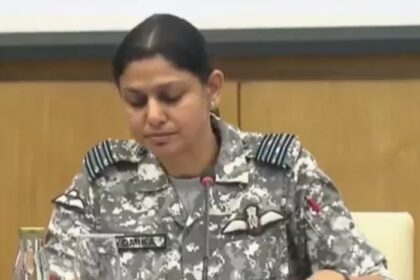As the first phase of Jammu and Kashmir’s assembly polls rapidly approaches, a glaring absence looms over the political landscape: the manifestos of India’s two major national parties, the Bharatiya Janata Party (BJP) and the Indian National Congress. This delay raises serious questions about their preparedness and commitment to the region’s unique challenges.
The failure of both the BJP and Congress to release their manifestos while regional parties like the National Conference (NC), People’s Democratic Party (PDP), Apni Party, Awami National Conference (ANC), and CPI(M) have already done so is deeply troubling.
This vacuum leaves voters, especially those in the 24 constituencies voting on September 18, without a clear understanding of what these national parties stand for in the context of J&K’s specific needs.
These elections, being the first since the abrogation of Article 370, carry immense symbolic weight. They are widely viewed as a referendum on the central government’s decisions regarding J&K’s special status.
Perhaps most concerning is the position this puts the candidates themselves in. BJP and Congress candidates in the fray for the first phase, these political representatives are left without a clear party line to communicate to voters. This not only hampers their campaigning efforts but also raises questions about the internal cohesion and preparedness of these national parties.
The apparent strategy of waiting for the other party to make the first move smacks of political gamesmanship rather than genuine engagement with the electorate. This approach does a disservice to the voters of J&K, who deserve clear, timely information to make informed decisions.
While speculation suggests that the Congress will focus on the restoration of statehood and the BJP on development post-Article 370, these broad strokes are insufficient. Voters need detailed plans addressing economic growth, employment, security concerns, and the unique cultural and political aspirations of the region.
If the parties do indeed focus solely on statehood (Congress) or post-370 development (BJP), they risk oversimplifying the complex reality of J&K. A comprehensive manifesto should address a spectrum of issues, from political autonomy to economic revitalization, from security to social cohesion.
By delaying their manifestos, both parties have missed a crucial opportunity to engage in a meaningful dialogue with the people of J&K. This period could have been used to gather feedback, address concerns, and demonstrate a nuanced understanding of the region’s needs.
As national parties vying for influence in a sensitive region, both the BJP and Congress must be held to a higher standard. Their delay in presenting clear policy positions should be scrutinized by voters, media, and civil society alike.
As the election date draws near, it is imperative that both parties release comprehensive, thoughtful manifestos that go beyond broad promises and political posturing. The people of Jammu and Kashmir deserve nothing less than a clear articulation of how these national parties plan to address their unique challenges and aspirations.
The delay in releasing manifestos by the BJP and Congress is more than a mere oversight; it’s a failure of political responsibility. As J&K stands at a crucial juncture, its people need and deserve clear visions and concrete plans from all parties vying for their support. The coming days will reveal whether these national parties can rise to the occasion or if they will continue to leave the electorate in a state of uncertainty.






